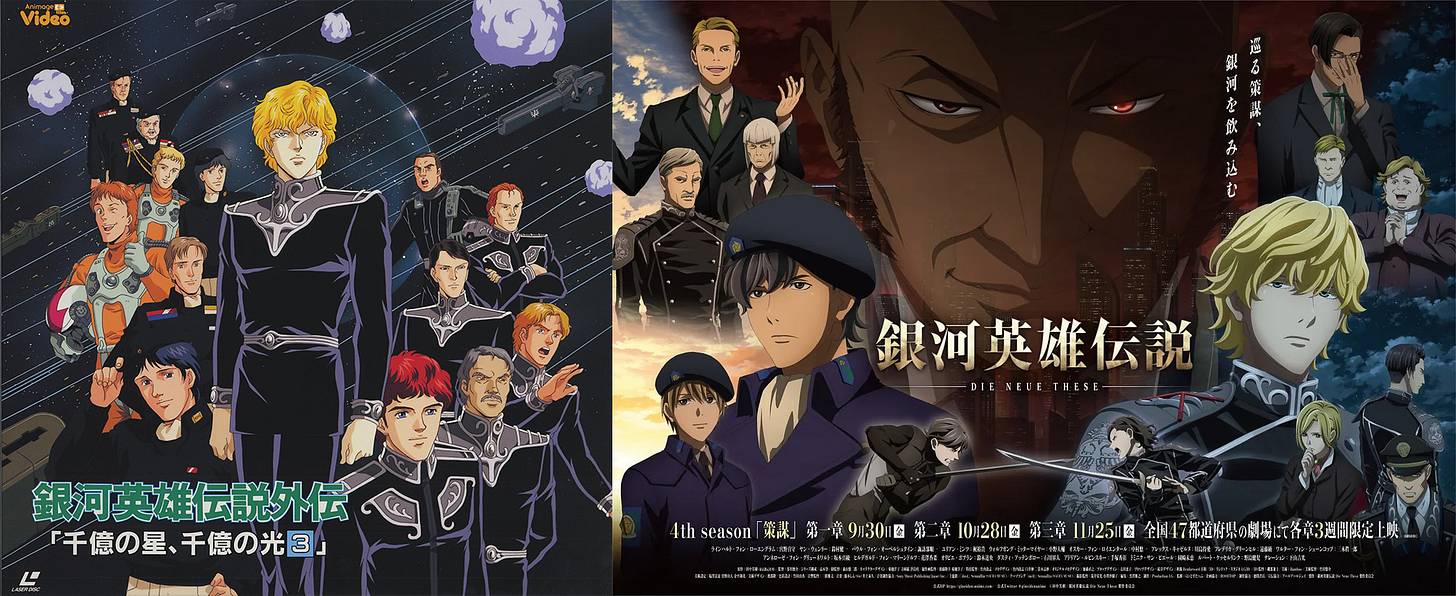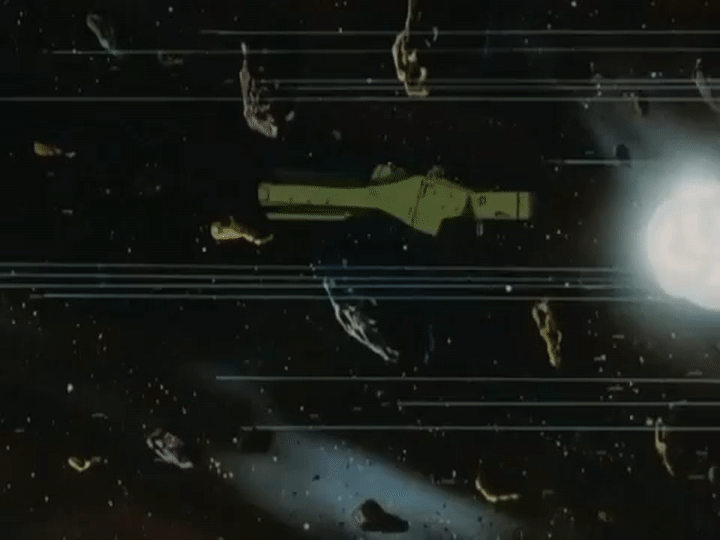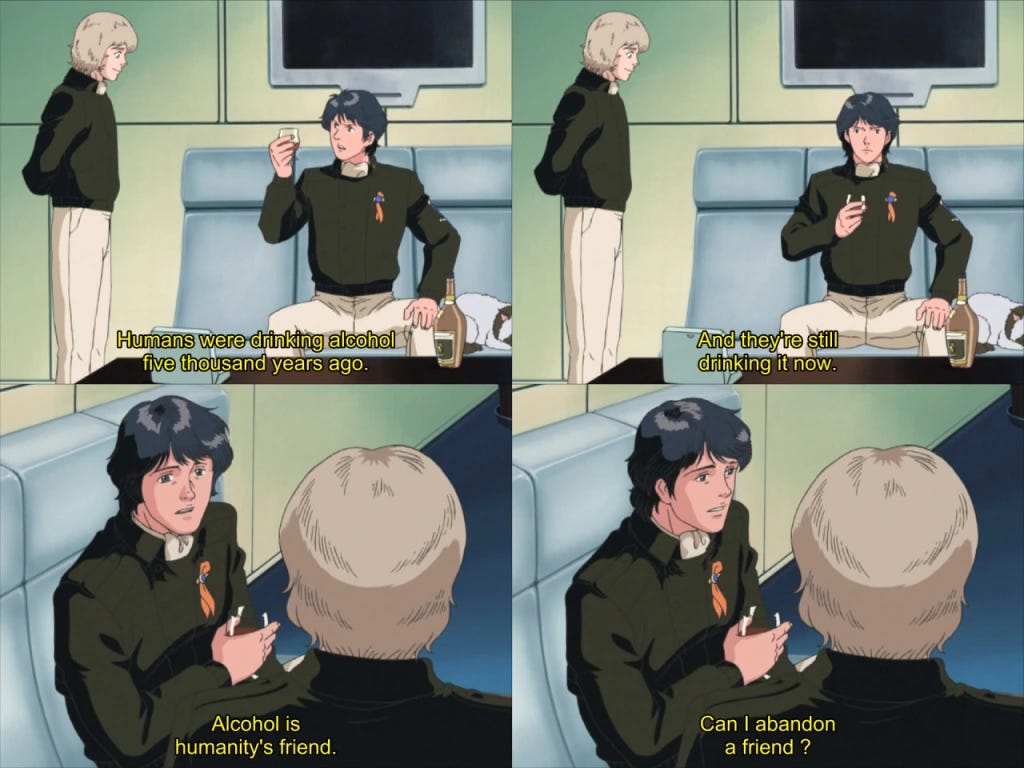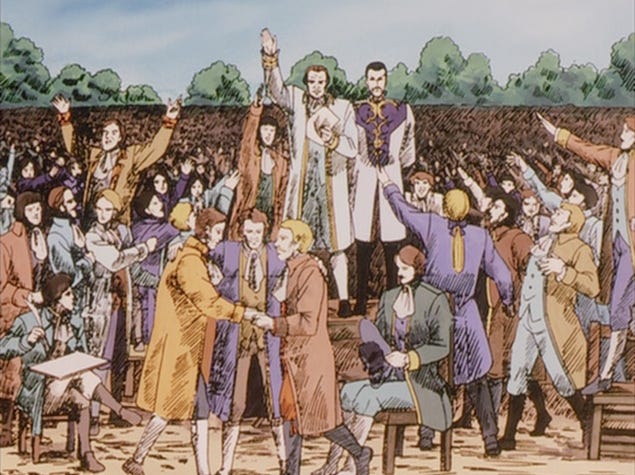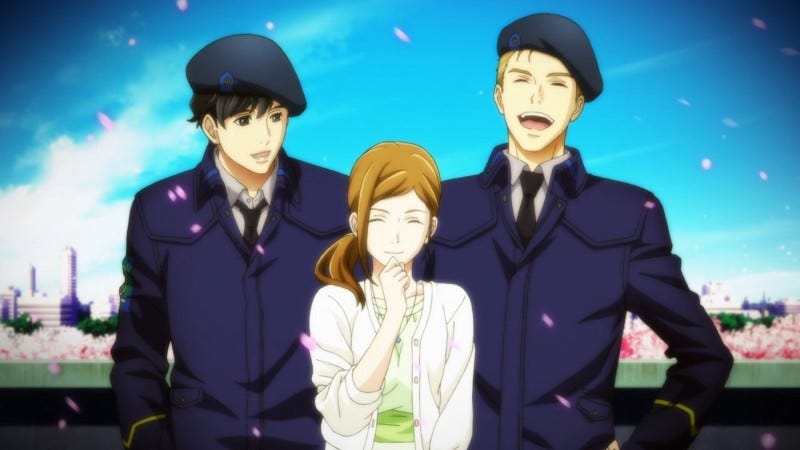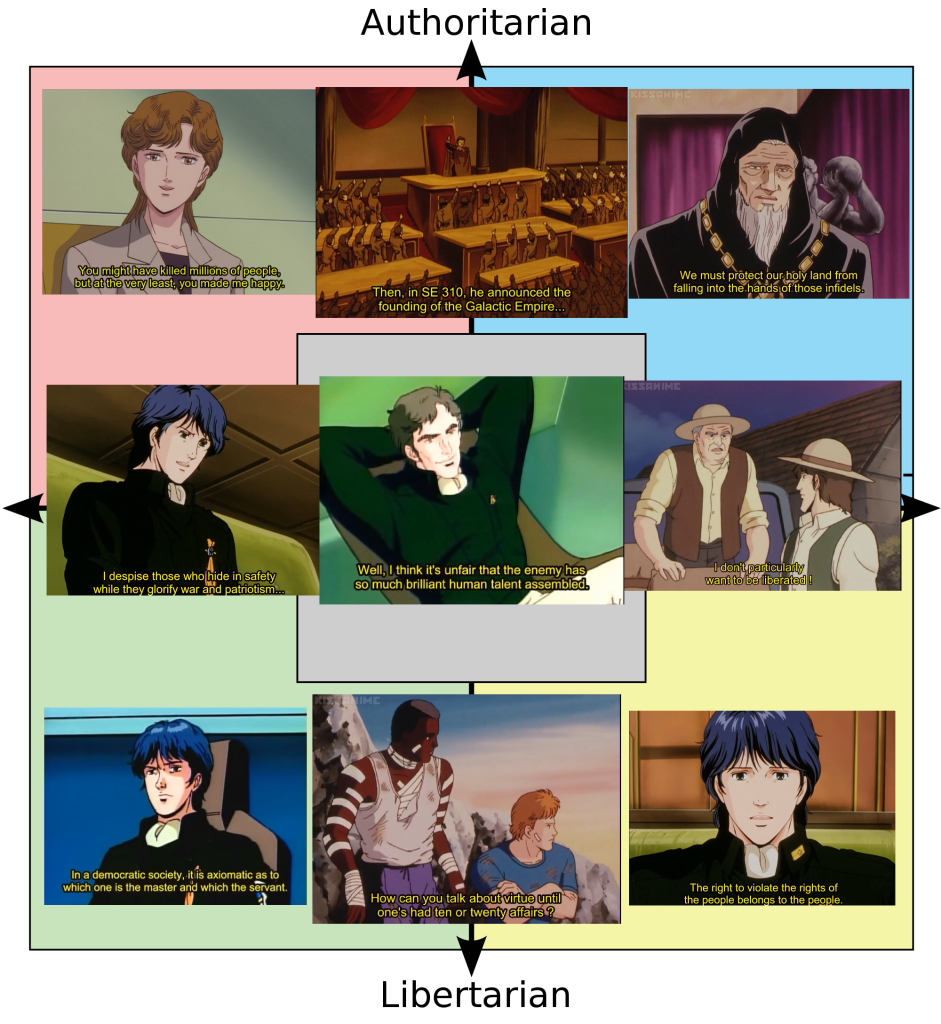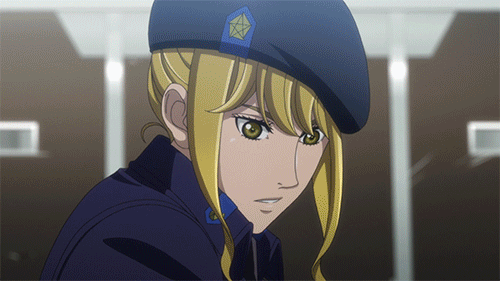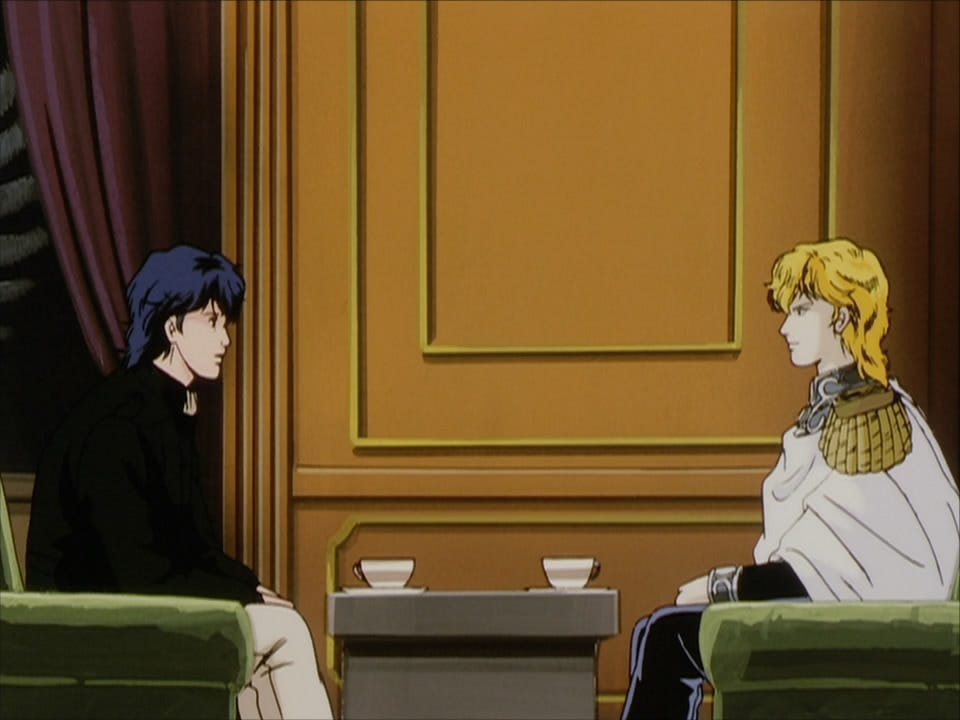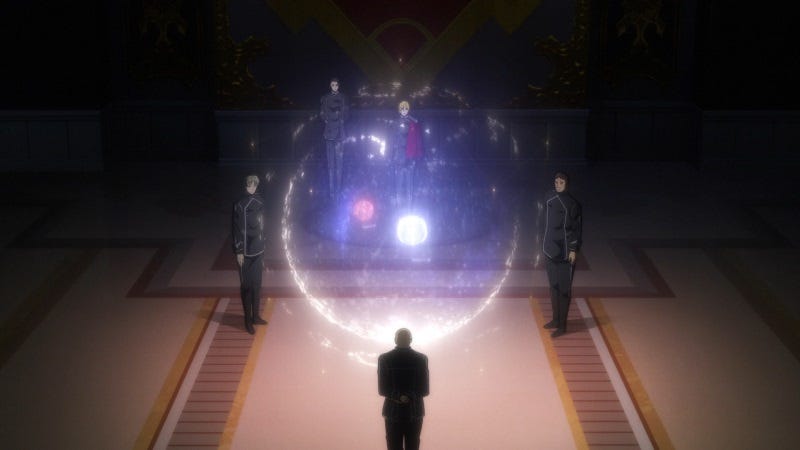In Every Time and Every Place: the Political Nuance of “Legend of the Galactic Heroes”
Given how divisive the cultural zeitgeist in the English-speaking world has become, can a work be political without being politicized, and what makes Legend of the Galactic Heroes stand out?
Disclaimer: This article was originally posted on Merion West as a contributor’s feature on April 4, 2021 and has only been slightly edited for re-publication. The original piece can be found here.
Zu Jeder Zeit
An Jedem Ort
Bleibt Das Tun
Der Menschen Das Gleiche
(In every time, in every place, the deeds of men remain the same.)
So begins Legend of the Galactic Heroes. When it comes to Japanese science fiction, it may not have as much popular appeal as the financially successful Gundam and Macross franchises. Yet within the country, and among foreign fans, it is given similar respect, if not comparable honors to the likes of Frank Herbert’s Dune and Robert Heinlein’s Starship Troopers, having won the 1988 Seiun Award for Best Novel of the Year. Such unlikely fame has been ascribed over the years to its myriad adaptations and grand scale, though this is also in no small part due to how it handles political nuance —something that modern, Western science fiction creators might learn from.
Also known as Ginga Eiyū Densetsu and Heldensagen vom Kosmosinsel (mangled German for “Heroic tales from the cosmic island”), it began as a series of ten novels and myriad side stories — all published between 1982 and 1989 by Dr. Yoshiki Tanaka — which could be described as a mix of Wagner’s operas and Romance of the Three Kingdoms. It has since expanded to include several anime miniseries, manga, and even theatrical plays. As a matter of fact, the original OVA (original video animation) anime run, encompassing 110 episodes from 1988 to 1997, remains one of the longest productions of its type, while the most recent adaptation, Die Neue These, has been ongoing since 2018.
Regardless of which version is most faithful, each is remarkably consistent in terms of motifs, plot elements, and the presence of political themes. Given how divisive the cultural zeitgeist in the English-speaking world has become, it can make one wonder: Can a work be political without being politicized, and what makes Legend of the Galactic Heroes’ treatment of political nuance stand out in particular?
Between One Good and Another Good
Legend of the Galactic Heroes takes place amidst an interstellar war around the 36th Century AD. On one side is the heavily Germanic Galactic Empire, an absolute monarchy under the rule of the Goldenbaum dynasty. On the other is the democratic Free Planets Alliance, whose forefathers had escaped tyranny to forge a new destiny. While the two great powers of the known universe find themselves in a seemingly endless stalemate, with skirmishes among opposing fleets causing casualties in the millions, the nominally imperial border world of Fezzan presents itself as a neutral trading hub profiting from the bloodshed.
It is in this interminable quagmire that an ambitious young noble named Reinhard von Musel, later known as Reinhard von Lohengramm, rises up the ranks to become a skilled admiral in his own right, though his true goal is to save his sister and seize the universe. While in the Alliance, Yang Wen-li, a brilliant yet carefree man half-heartedly serving in the military, also rapidly gains fame as a war hero for his talents, despite his attempts at pursuing a quiet life as an historian. The actions of these individuals and those around them shape the course of human civilization forever.
Despite the Star Wars-esque space opera set-up, not everything is what it seems. True, there is no shortage of grand space fleets, laser barrages, and à la Death Star battlestations like Iserlohn Fortress. Yet from the lowliest grunts up through the chain of command, there is much consideration for things like logistics and strategic planning, with whole chapters or episodes dedicated to such. The fact that the proverbial “lower decks” are given any focus at all amidst the Wagnerian drama further adds a degree of realism not often seen in sci-fi, Japanese or otherwise. That the horrors and costs of war are never far behind the glorious spectacle — be it the gruesome deaths on both sides or the scars left on various characters — also foreground this realism without being overwhelming.
Such attention also extends to how the main factions are shown. The Free Planets Alliance, for instance, may take heavy inspiration from America and various Western democracies, but is also portrayed as seething with corruption. Despite being a tinderbox of social unrest waiting to explode, there remain those willing to keep that beacon of liberty alive. The Empire, meanwhile, is rife with decadent, backstabbing aristocrats that would not be out of place in A Song of Ice and Fire, however dignifiedly they present themselves. Nonetheless, there are more than a few commoners and nobles who prove themselves decent exemplars of Noblesse Oblige. This is not a clear-cut struggle between good and evil, especially when enemies could come from within as well as without. Rather, as Yang himself muses in the story, it is a war between one good and another.
This does not merely make the protagonists sympathetic — it also provides an opportunity to explore each side and their respective ideologies, often intermeshing with the myriad plotlines. Take Reinhard’s rise to becoming Emperor, as well as his subsequent efforts to cement his benevolent rule, which showcase how autocratic and monarchist systems could just as effectively be “for the people” as be abused by power-hungry nobles. Similarly, there are those within the Alliance with a commitment to democracy, including a regiment of Imperial defectors called the Rosen Ritters; however, there are also those for whom the Alliance’s democracy is a mere tool for personal enrichment at whatever expense — one example being officers like Andrew Falk, who tries using the ultimately doomed invasion of the Empire as a means with which to gain fame and political power, however much he wraps it under pretensions of leading a “crusade” for democracy, while another would be Job Trunicht, an opportunistic politician who is out for personal survival and being “number one,” even if it means turning on his own country and supposed convictions — demonstrating how individual liberty could inspire both the best and worst in people.
Just as notable are the franchise’s prolific historical references. While, according to interviews, these originated from Dr. Tanaka’s penchant for world-building, they go beyond the Empire’s Prussian aesthetics and German-inspired floral motifs and the setting’s millennia-long timeline. Instead, there is a pervasive allegory that, though still relatively logical in-universe, would be recognizable to anyone with interest in the past. The circumstances surrounding the rise of the Goldenbaum dynasty, for instance, echo Hitler’s ascension to power, while subsequent Imperial figures in the backstory take inspiration from various European monarchies. This is even seen in the franchise’s present era, with Yang’s strategies being based on both his own readings of historical battles and Sun Tzu’s advice in The Art of War, in contrast to his rival’s invocation of von Clausewitz and Alexander the Great. The myriad adaptations go even further in adding their own touches, from the defeat of a depraved rebel being lifted straight from Julius Caesar‘s assassination, to the High Nobles’ pact to dethrone the young usurper being an ironic mirror to a similar scene from the French Revolution.
These uses of history and allegory are reinforced by how Legend of the Galactic Heroes utilizes issues that would be all too familiar as part of the story. Whether it be the Alliance’s big push to “win” the war’s being a glorified election bid among its leadership, or how allowing a nuclear attack on a defenseless planet to end a civil war comes to haunt the Imperials even after their eventual triumph, the series does not shy away from delving into uncomfortable topics that are as relevant today as back when the novels were originally written. In the process, they lend a kind of timelessness that transcends cultural lines and provide ample fodder for Internet memes.
With such in mind, it is all the more impressive how at no point do these themes come off as forced. Once more invoking the recurring motif of one good vs. another, there are about as many verbal arguments and retorts as there are actual battles. The best solutions for any given situation are not necessarily the morally right ones, nor the only possible choices. Even Yang’s penchant for delivering monologues about human nature is not above scrutiny in-universe. This is not to say that it is pure relativism. There are genuine villains to be found — from corrupt military officers, to a conniving cult exploiting the memory of Earth — while the dispassionate, third-person narration is prone to tracts on hypocrisy and the futility of war. Nonetheless, the author ultimately leaves the audience to decide for themselves.
It is not too surprising, then, how this saga gained its reputation and fame. Had it come out in the West in more recent years, however, it may not have been so celebrated.
Lost in Translation?
Starting around the 1990s, Legend of the Galactic Heroes began fostering a fanbase beyond Japanese shores, particularly in the English-speaking world. Despite growing demand, fueled in no small part by fan translations, or “fansubs,” of the original OVA adaptations, the sheer bulk of the material deterred efforts at localizing the series for the longest time. It was not until 2015 that distributors such as Viz Media and Sentai Filmworks finally announced plans for officially licensing the saga, exposing it to a wider demographic in the West.
By that point, however, the landscape of Anglophone Sci-Fi had grown more divisive. While the exploration of politics is about as old as the genre itself, the mid-2010s marked an increasing hyper-partisanship. This was exemplified by the controversy surrounding the Hugo Awards, as progressive and conservative authors clashed over the proverbial soul of their collective passion. Meanwhile, the notion of what it means to be “political” took on a more activist, if not antagonistic, bent that prioritized crushing reactionary institutions and thoughts, in whatever form they may have been. In such a divisive atmosphere, it comes as little surprise that the first volume’s review by Publisher’s Weekly slammed the book for having an outdated, “overwhelmingly male-dominated story and shallow female characters,” all of which seemingly have no place in today’s more “nuanced” landscape.
Putting aside the critique’s pettiness, or Dr. Tanaka’s novels’ being a product of their time, it is also telling how those elements that help define Legend of the Galactic Heroes are paradoxically what cause its being perceived as problematic. The use of the Third Reich among its historical references, the lack of any real strawmen and caricatures, and more significantly, a firm refusal to be glorified propaganda for any particular ideology, have all but guaranteed that it will not earn any future Hugo or similar Western media award. It is also worth noting that the female characters in the novels (and even more so in the adaptations) are by no means shallow, and in fact become more dominant toward the end of the story: whether it be a spirited young noblewoman, who not only joins Reinhard’s camp but becomes Empress through her own talents, or Yang’s subordinate (and later wife) Frederica Greenhill, who eventually becomes one of the most powerful pro-democracy figures opposing the Empire.
Perhaps the series does not need attention from such willfully negative circles. These would-be setbacks have not dampened fan enthusiasm for the franchise, in Japan and elsewhere. Nor have they deterred other critics from lavishing accolades and praise, approaching the work on its own terms. Writer Rachel S. Cordasco goes so far as to compare it with the History of the Decline and Fall of the Roman Empire in its ambitious historiography and multi-layered nuance, which ironically seem lost on those seeking to claim Sci-Fi for their respective cliques.
That Legend of the Galactic Heroes succeeds at being political without antagonizing its audience or mounting a polarized soapbox is commendable. That it manages to do so while still being an engrossing space opera and featuring compelling characters demonstrates fiction-writing at its best. Indeed, compared to some of the material seen on bookshelves or video-streaming websites, it may as well be a breath of fresh air that outlasts many of those works, The Expanse notwithstanding.
Those waging the culture war, regardless from which side, may need to take heed of this if they wish to move forward. Then again, the deeds of men remain the same.
Addendum (Dec. 7, 2024):
On November 5, 2023, Production I.G. announced that work had begun on the fifth season of Die Neue These, the current, ongoing adaptation of Legend of the Galactic Heroes. While not quite a household title in the Anglosphere any more than it was when the original article was published on Merion West over three years ago, its status as a Japanese mainstay remains as strong as ever. If the studio’s parent company I.G. Port’s most recent quarterly report for Q3 FY2024 is anything to go by, it’s one of media group’s top 10 most profitable franchises (JPY 81 Million or almost 5% of total sales). For a saga of its pedigree and infamy, this is no small feat, especially when the latest iteration become almost as well-regarded as the old OVAs, and televised editions continue to be broadcast.
Granted, it goes without saying that this isn’t for everyone. The voluminous books and OVAs are notorious for their drawn-out storytelling — in which preparations for battles taking place further down the line can last several episodes, and conversations can wind being more akin to philosophical monologues — which can mark approaching them a daunting task in itself. Though Die Neue These is faster-paced (with dialogue being more fluid and natural) and more dramatic by comparison, albeit at the expense of feeling more compressed, the material is still dense enough as to require multiple viewings to appreciate. If there’s one thing it can’t be faulted for, however, it would be how Dr. Tanaka’s magnum opus, regardless of iteration, respects its audience in letting them ponder on its themes.
Perhaps this could explain why, the series has managed to escape much of the “media literacy” discourse on social media plaguing Western sci-fi classics like Starship Troopers and Dune. That’s not to say that it’s been completely immune, with more than a few video essayists using it as fodder for either political grandstanding, or low-key posturing with how “cultured” they are compared to the masses. There have also been attempts over the past decade at critiquing the saga as being an allegory of modern Japan, a case of conservative dog-whistling (and thus “problematic”), or something fundamentally radical if not in line with Marxist ideas. Nonetheless, from academic critique to fan analyses, including those less-charitable takes, the very ambiguity and nuance in the material lend themselves to so many varied interpretations that there’s no clear-cut “definitive” answer.
More than anything, what was said back then remains as relevant now. Legend of the Galactic Heroes remains a masterclass at how to not only mesh a grand space opera with multifaceted if not timeless political motifs but also trust those engaging in it to make up their own minds. Something that Western sci-fi and the more divisive corners of modern discourses can take lessons from. That is, if they bother to make the effort.




